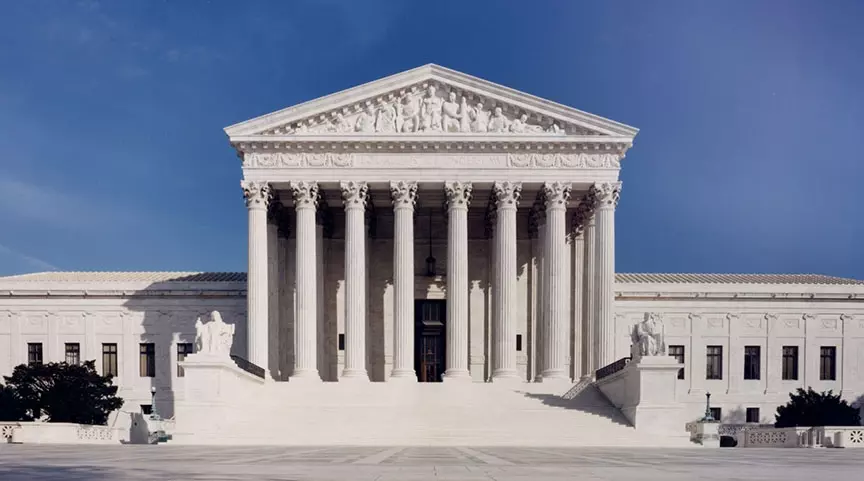Though they were hoping the U.S. Supreme Court would act this week to take up their challenge to a 2015 California state law that forces locally funded pro-life medical clinics to advertise taxpayer-funded abortions, pro-life advocates remain optimistic after the High Court rescheduled its consideration for later this fall.
In an email Tuesday to supporters and 1,400-plus affiliated pregnancy help centers and ultrasound-equipped medical clinics, National Institute of Family and Life Advocates (NIFLA) president Thomas Glessner, J.D., noted that his organization hopes to hear from the Supreme Court as early as Monday, Oct. 9.
If the Supreme Court decides to hear the case, National Institute of Family and Life Advocates v. Becerra, its eventual decision would have far-reaching ramifications on a series of state-level laws enacted by pro-abortion legislators over the past three years.
“While we were hopeful that [the Supreme Court] would at this time grant our petition for review, we are not discouraged at all about this decision,” Glessner wrote. “In fact, it indicates a high probability that eventually our case will be accepted by the high court.”
NIFLA filed an appeal to the Supreme Court this March, after the Ninth Circuit Court of Appeals upheld California’s so-called Reproductive FACT Act in October of 2016. Signed into law in October of 2015 by Gov. Jerry Brown, the act demands that state’s more than 75 community-funded pro-life medical clinics post signage and hand out disclaimer information to all clients detailing where and how a client can obtain a taxpayer-funded abortion.
Since NIFLA first appealed to the Supreme Court, over a dozen organizations have filed amicus briefs in support of NIFLA, including fellow pregnancy help network Care Net, as well as the Cato Institute, the National Association of Evangelicals, the Christian Legal Society and the Charlotte Lozier Institute.
[Click here to subscribe to Pregnancy Help News!]
The notice, which the law specifies must either be posted as a public notice in “22-point type,” “distributed to all clients in no less than 14-point font” or distributed digitally “at the time of check-in or arrival,” applies to all pregnancy help medical clinics licensed by the state.
"California has public programs that provide immediate free or low-cost access to comprehensive family planning services (including all FDA-approved methods of contraception), prenatal care, and abortion for eligible women. To determine whether you qualify, contact the county social services office at [insert the telephone number]."
Meanwhile, pregnancy help centers that do not offer medical services will be required to post the following signage in two “clear and conspicuous” places—“in the entrance of the facility and at least one additional area where clients wait to receive services,” as well as in “any print and digital advertising materials including Internet Web sites”.
The font required is to be “in no less than 48-point type” and will read as follows:
"This facility is not licensed as a medical facility by the State of California and has no licensed medical provider who provides or directly supervises the provision of services."
Passed through the state senate and assembly on strictly party-line votes, the law has only been enforced in one jurisdiction, where Los Angeles city attorney Mike Feuer leveraged an obscure law that mandates current signage for local businesses, forcing pregnancy medical clinics to comply.
Though it was upheld by the Ninth Circuit Court of Appeals—which the Supreme Court reverses more than any other in the nation—the law has been lambasted as a clear violation of free speech and free exercise of religion as protected by the First Amendment.
Most recently, a county judge in Southern California blasted the law as in conflict both with the First Amendment and the California Constitution’s guarantee that “[e]very person” can “freely speak, write and publish his or her sentiments on all subjects”.
Tweet This: #Prolife community looking to @SCOTUS to protect #FreeSpeech. @NIFLA
California’s law has since served as a template in Hawaii, which adopted a virtual carbon copy of the law this July. NIFLA and Alliance Defending Freedom (ADF) asked a Hawaii state court for a preliminary injunction to its law Sept. 22, and are awaiting that court’s decision.
This summer, a federal judge in Illinois granted a statewide preliminary injunction, holding off enforcement of legislation that would require pro-life medical professionals of all kinds—including those serving with pregnancy centers—to refer their patients for abortions and counsel as to the purported “benefits” of the lethal procedure upon request.
Past attempts by local authorities to compel pro-life pregnancy centers to post signage either declaring the services they do not offer or referring patients—even indirectly—to abortion providers have been struck down in New York City, Austin (TX), Baltimore (MD) and Montgomery County (MD), the latter of which cost taxpayers over $330,000 in attorney fees.






